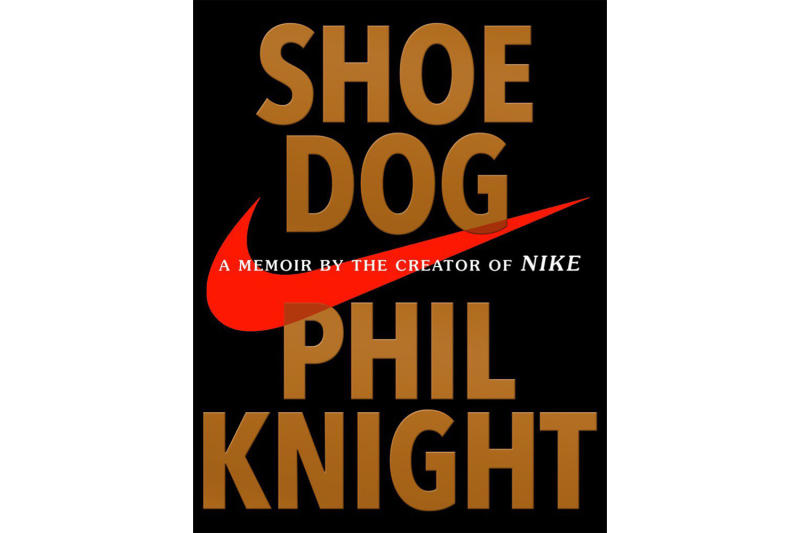
Here are some people you will not read a word about in Nike co-founder Phil Knight’s memoir, Shoe Dog: Mark Parker, Tinker Hatfield, Hiroshi Fujiwara, Kanye West, Riccardo Tisci, Penny Hardaway (or Lil Penny), Charles Barkley, Dan Wieden and David Kennedy, or Spike Lee. Meanwhile, Michael Jordan, LeBron James, Kobe Bryant, Andre Agassi, Pete Sampras, Bo Jackson and Tiger Woods are only mentioned in the “Night” afterword. There is no mention of the infamous story of Shaquille O’Neal arriving on Nike’s campus in full Reebok gear, reportedly infuriating Knight; or of the mid-’80s threat posed by Reebok (again) with their garment leather aerobics shoes. In fact, Reebok isn’t mentioned a single time.
Shoe Dog is, at its heart, an origin story, of both a global brand and a footwear lifer. At times it reads like pure adventure story, boys facing steeper and steeper challenges and finding ways through, often by the skin of their teeth. As Knight collects the misfits and oddballs who become the core of his growing company, Shoe Dog is more like The Lord of the Rings than a typical mogul memoir. In fact, calling it a memoir at all seems slightly inaccurate—outside of the afterword, the 78-year-old Knight covers just 18 years of his life, from 1962, when his odyssey began, to 1980, when Nike went public. One would gather these were the most important years.
If you’ve read Swoosh, the unauthorized Nike “biography” written by J.B. Strasser and Laurie Becklund back in 1991, much of the specifics of Knight’s book will be familiar. What’s different is the perspective. It’s one thing to be told that Knight essentially tricked Japanese running shoe manufacturer Onitsuka into supplying his non-existent company with sneakers to sell, it’s another for Knight to describe the scene himself:
Mr. Mizayaki interrupted. “Mr. Knight—what company are you with?” he asked.
There is, no doubt, some embellishment. After all, these are events that took place 50 years ago. The speech Knight gave following Nike’s emancipation from Onitsuka, for example, reads like a mashup between Bill Pullman’s speech in Independence Day and Laurence Fishburne’s in The Matrix: Reloaded, ending: “We are still alive, people. We are still. Alive.”

Then again, much of Shoe Dog seems like something written for Hollywood, as Knight and his band of ne’er-do-wells traipse over the globe, break every financial rule in the book, and keep their young company alive through all means legal and some not so much. (In the first part of the book, Knight laments that he’s the “only person in America who hasn’t yet rebelled.” By the end, he’d rebelled plenty.) It’s a story of a boy who found a way to never grow up.
At least not in the main portion of the book, which ends in 1980, as Nike moves manufacturing to China and goes public. Knight becomes a millionaire overnight, and—not to spoil the end of the book, but it’s not much of a spoiler—goes to work the next day. This is the success part of the story. After 18 years of uncertainty, Nike is finally on solid financial ground. If it were a movie, the music would come up, the sun would peek through, and everyone would go home happy.
Instead, we fast-forward 27 years, to a Palm Springs movie theater, where Knight and his wife, Penelope, having just seen The Bucket List, run into Warren Buffett and Bill Gates in the lobby. (At the time, according to Forbes, those three men were worth a combined $117.5 billion.) This serendipitous meeting planted the seed for the book, but also made Knight reflect on the missteps he made along the way. Regrets, he’s had a few—from never properly making peace with former executive Rob Strasser (who left for adidas in 1987 and died in 1993 at the age of 46) to not signing Magic Johnson (Knight thought he was “a player without a position, who’ll never make it in the NBA”). He also speaks eloquently on his oldest son, Matthew, who died in a diving accident in El Salvador in 2004 at 34. Not being able to spend more time with family, that was the largest regret of all.
If the 1962-1980 portion of Knight’s story solves a problem, the “Night” postscript serves as a reminder that some problems can never be solved, that stories usually don’t end the way we want them to. That successes, however large, are accompanied by tragedy— often woven together so tightly that one can’t be separated from the other. But it’s also a reminder that life is in the attempt. In the “Dawn” forward, Knight quotes Bill Bowerman, legendary Oregon track coach and his partner in Nike from the beginning: “The cowards never started and the weak died along the way—that leaves us.” We may not be able to control the results, but we can...just do. Sounds familiar.

